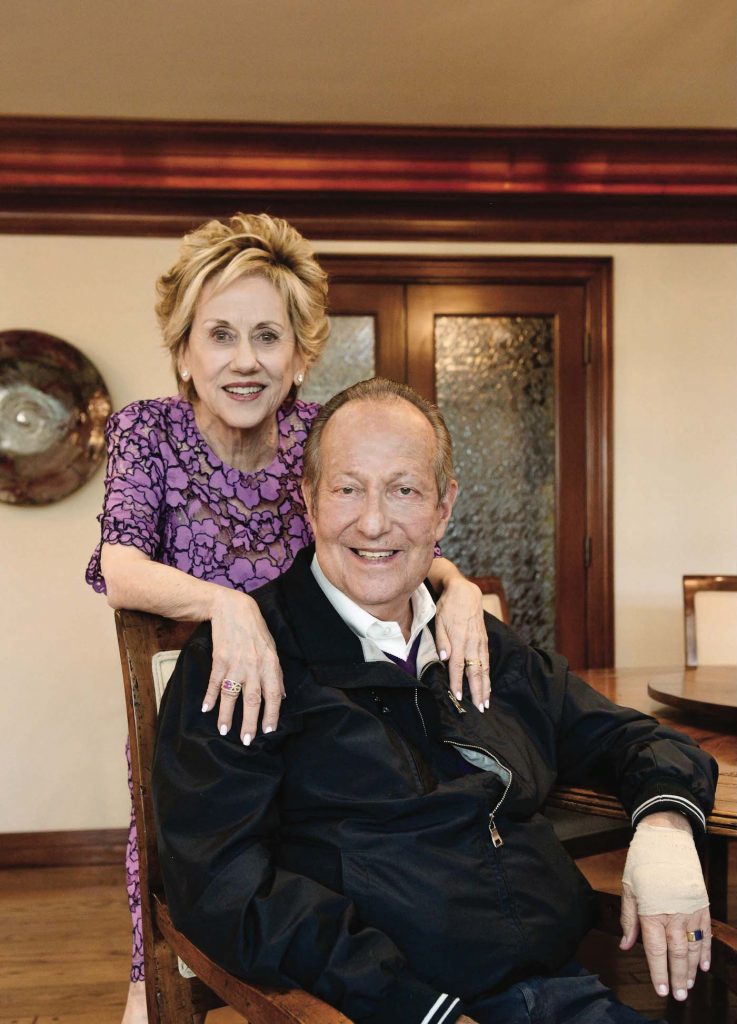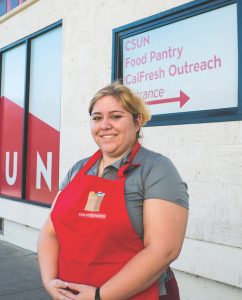Equal Parts Optimist and Philanthropist

How would you feel if you lived with multiple sclerosis for more than half a century and, in an unrelated incident, needed a kidney transplant from your son? In philanthropist Bruce Corwin’s case, he feels overwhelmingly grateful. Never one to feel sorry for himself, Corwin is grateful to have survived everything life has thrown at him, grateful to have thrived, and has always been most grateful of all for the opportunity to help others. According to Corwin, what drove his philanthropy was, pure and simple, that helping people was fun.
“Helping my friend Tom Bradley get elected the first African American mayor of a major U.S. city, building theaters in Watts after the 1965 riots, building the Discovery Cube science museum, and the Martin Luther King Community Hospital – all of these were just fun. And obviously it’s gratifying that we also did a lot of good and that so much of it has endured.”
Corwin came to philanthropy naturally. His father founded the Metropolitan Theatres chain in Los Angeles where giving was always core to the mission.
“Helping was in our blood. It’s just… what one did. We started with our own [Jewish] community and gave what we had,” Corwin says. “Since theater was our business, for underfunded congregations that needed a physical place of worship, my folks would hold high holy day services in our theaters. My dad also donated pipe organs to congregations in need, because organs were both necessary and prohibitively expensive.”
It would not be the last time Corwin was involved with organ donation; later in life he would be on the receiving end of a different kind of organ: a kidney from his son. “I definitely believe in karma,” Corwin says with a wry smile.
Though the Corwin family began their philanthropic journey by helping Jews in need, their mission has grown significantly. Corwin’s family synagogue (Temple Israel of Hollywood) was an early booster of Martin Luther King Jr. In fact, they sponsored an important speech of King’s, and as a result a 25-year-old Corwin met Dr. King when the reverend spoke at Temple Israel in 1965.
“I always simply did what I believed was right and necessary at the time,” Corwin says. This attitude eventually led to Corwin’s arrest for participating in sit-ins at lunch counters in Maryland, which he considers a badge of honor. But this was just the beginning of Corwin’s active engagement in helping the disadvantaged, disenfranchised, and oppressed.
“Years later after the Watts riots, Tom Bradley, who was then just an L.A. city councilman, came to me. He wanted to put movie theaters in Watts. He thought it was important. So, we collaborated with a bunch of other exhibitors, and everyone pitched in.”
Corwin and Bradley brought a number of theaters to Watts and in the process also kicked off an incredible friendship that lasted all the way up until Bradley’s death in 1998. Over the course of that decades-long friendship, Corwin was the treasurer of all Tom Bradley’s mayoral campaigns – in fact, he was the treasurer of Tom Bradley’s entire political career.
“We supported something the community wanted and needed, and the community was instrumental in establishing the new hospital’s scope, style, and mission. That’s why MLK is so much more than just about ‘trauma.’ For example, that’s why ‘wellness’ is also an enormous part of the new hospital’s mission.”
Corwin thinks the significance of the sometimes-underappreciated political ascension of Mayor Bradley cannot be overstated. Corwin says Bradley paved the way for Barack Obama to become president not just in terms of how he conducted himself, but by straddling the interests of so many diverse groups. Corwin attributes many of his most valuable life lessons from his years working with Bradley.
“Our theaters in Watts were successful for a while. But they were also sort of ‘gifted’ to the community rather than emerging from the community. So, after the initial positive impact, I think the theaters started to be perceived as the ‘work’ of white liberals. That’s why we were eventually replaced by Magic Johnson Theatres. There was a definite learning curve there. We learned that with some of these urban solutions, it’s gotta bubble up from the community. The solutions have to be home grown.”
“We all learned a lot from both the success of the Watts theaters as well as their built-in limitations. You need to support local initiatives. Fortunately, because of those learnings, years later, we were able to have incredible success helping establish the Martin Luther King Community Hospital, which replaced L.A.’s ailing and failing King/Drew Medical Center. We supported something the community wanted and needed, and the community was instrumental in establishing the new hospital’s scope, style, and mission. That’s why MLK is so much more than just about ‘trauma.’ For example, that’s why ‘wellness’ is also an enormous part of the new hospital’s mission.”
When asked where philanthropic efforts are most needed today, Corwin’s response is quick and his empathy is clear.
“Certainly, one of the biggest problems facing our state if not the biggest problem is the complicated and multilayered issue of homelessness. Because, let’s face it, if we were homeless, this is where we’d want to be. It’s something we’ve simply got to get a handle on.”
Still energized, highly engaged, and always on the hunt for ideas on how to solve complicated problems, Corwin then asks his interviewer if he’s heard of any new strategies for dealing with the houseless that sound promising, imaginative, and even daring.
“And it’s got to involve them,” Corwin adds quickly. “Because if it’s something they want, you’re gonna have a lot more success than some solution that simply gets dropped on them. We’re all in this together, right?”
